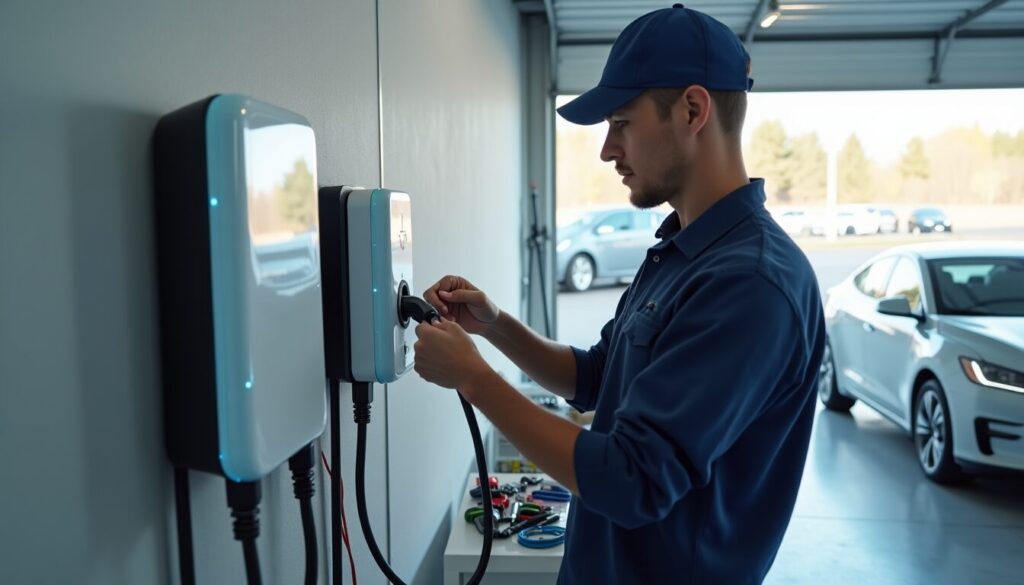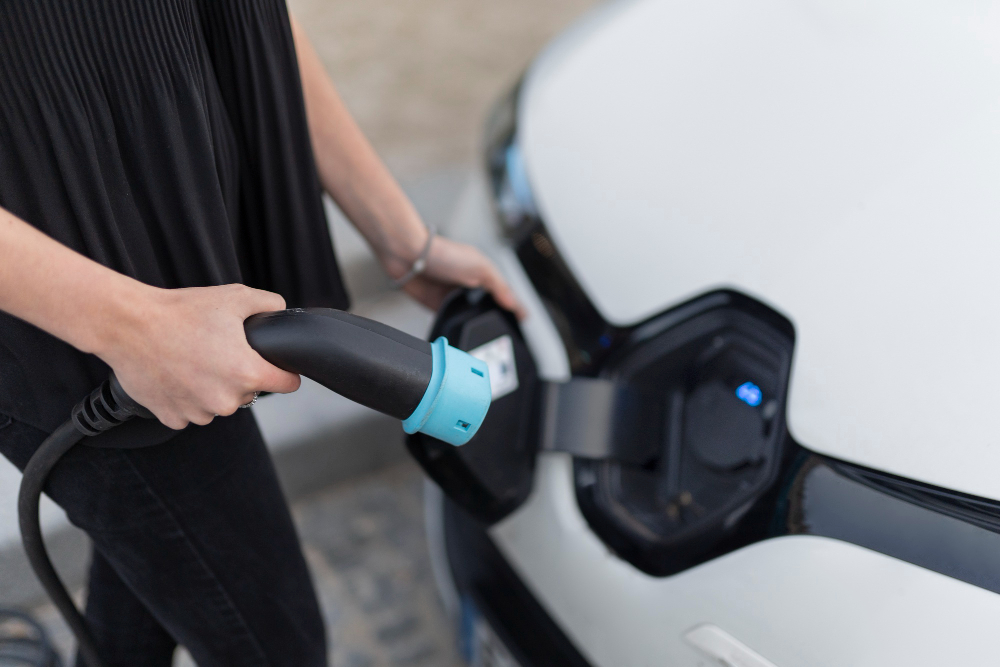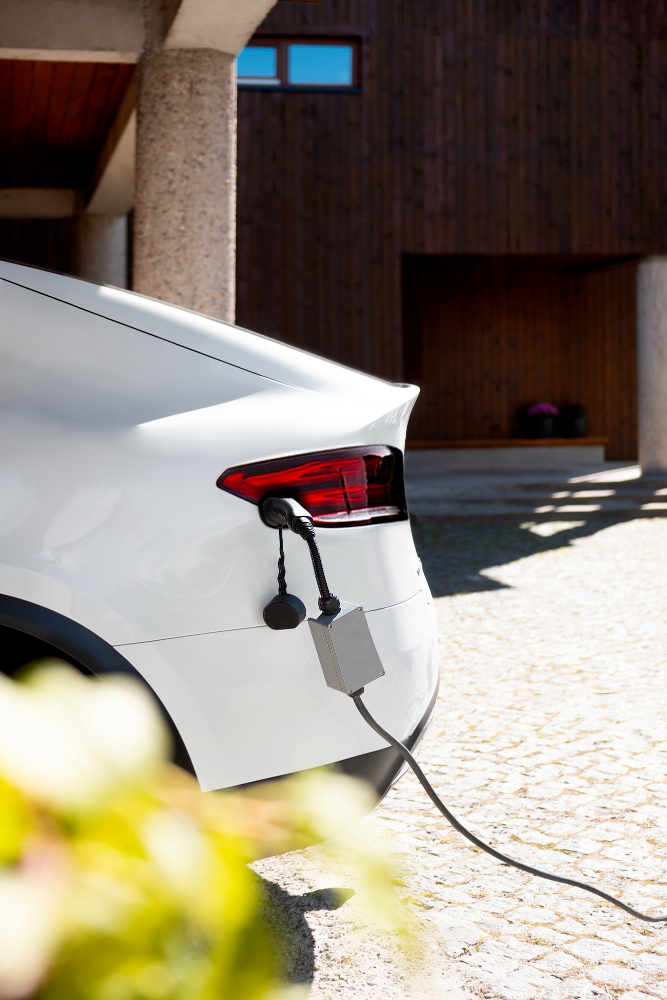The UK’s electric vehicle adoption continues to rise, and homeowners face a significant question: Will their local electrician be able to install an EV charger?
Most people trust their emergency electricians and local contractors with basic household electrical needs. However, EV charger installation requires specialised certifications and expertise. The process involves complex systems that just need precise safety protocols and technical understanding. This makes it quite different from standard electrical work like socket wiring or circuit breaker repairs.
Let’s examine why regular electrical expertise may fall short for EV charger installations. We will also explore the required qualifications and reasons that make specialised EV charging installers your safest and most reliable choice.

Understanding EV Charger Installation Requirements
The complex world of EV charger installation requirements extends way beyond standard electrical work. UK regulations have changed dramatically. These changes affect system installation methods.
Current UK regulations and standards
The UK government has created detailed regulations for EV charging installations. The Electric Vehicles (Smart Charge Points) Regulations became active in June 2022 1. New installations must now meet strict requirements. Smart chargepoints need features such as:
- Pre-configured charging schedules
- Improved security protocols
- Detailed charging statistics
- Tamper detection mechanisms
- Secure software updates
Required certifications and qualifications
Your local emergency electrician might excel at general electrical work, but EV charger installation needs specific certifications. Installers must follow BS-EN-61851-1:2019 standards. They should also prove their competency with IET Wiring Regulations BS 7671:2018+A1:2020 2. Qualified professionals who understand both electrical systems and EV-specific requirements must handle the installation.
Importance of specialised training
Specialised training plays a vital role in this field. The IET Code of Practice for Electric Vehicle Charging Equipment Installation 3 requires intensive training. This knowledge helps installers handle technical complexities like load management. Load management becomes significant when multiple charging points need installation 4.
Building regulations must be followed during installation. Proper documentation, including a Statement of Compliance 2, needs to be maintained. This expertise level sits nowhere near what most general or emergency electricians handle daily.

Key Differences Between Standard and EV Electrical Work
Standard electrical work differs greatly from EV charging installation in terms of complexity. Your local emergency electrician might excel at handling household electrical emergencies. EV charging systems, however, present unique challenges that need specialised expertise.
Technical complexities of EV charging systems
EV charging systems need sophisticated technical understanding that goes beyond standard electrical work. Level 2 chargers operate at 230 volts and just need a dedicated circuit with at least 40 amps supply 5. These systems also require:
- Uninterrupted Wi-Fi connectivity for smart charging features
- Advanced monitoring capabilities
- Integration with home energy systems
- Specialised commissioning procedures
Specialised safety considerations
EV charging installations must meet stringent safety requirements. These systems handle continuous high-current loads for extended periods. Faulty or damaged lithium-ion batteries can create serious safety hazards, including thermal runaway and toxic gas emissions 6. Knowledge of EV-specific safety protocols is vital to ensure proper installation.
Load management requirements
Load management capabilities represent the most important technical difference. Modern EV charging systems must include sophisticated load balancing features. These systems automatically control electricity distribution among multiple charging stations connected to the same circuit 7. Load management becomes vital because it helps:
- Prevent electrical system overload
- Streamline processes for charging
- Reduce installation costs by up to £7,941.60 in some cases 7
Certified EV charging specialists should handle these installations instead of standard emergency electricians or local electrical contractors.
Legal and Insurance Implications
The legal side of installing an EV charger might seem overwhelming at first. Let me walk you through what you really need to know to protect yourself and your property.
Warranty considerations
Most homeowners don’t know this, but getting your EV charger installed by someone who isn’t qualified will void your warranty. Manufacturers want certified professionals to do the installation if you want to keep your warranty coverage 8. Your local emergency electrician might charge less, but you could end up paying much more if you lose your warranty protection.
Liability and insurance requirements
EV charging installations need special insurance coverage beyond regular electrical work. Your installation should have:
- Public liability insurance if someone gets hurt
- Coverage if someone steals copper or vandalises the unit
- Protection if charging damages a vehicle
- Service indemnity coverage up to £50,000 9
Building regulations compliance
You must get building regulations approval for EV charger installations – it’s what we call ‘notifiable work’ 10. These compliance certificates are a great way to get:
- Valid insurance claims
- Smooth property sales later
- Legal protection if problems come up
The rules say you must submit your work to local building control unless someone from the competent person scheme does the job 10. Breaking these rules can cost you big time – there’s no limit on the first fine, plus you’ll pay daily until everything’s fixed 11.
This is exactly why working with certified specialists makes sense. They know all these complex rules inside out. Emergency electricians are great for general work, but EV charging needs special expertise to protect your investment and give you peace of mind.

The Role of Specialised EV Charging Installers
A regular emergency electrician can handle your everyday electrical needs. However, specialised EV charging installers bring unique expertise that is vital to ensure safe and compliant installations.
Benefits of using certified specialists
Choosing a certified specialist might seem like an extra step, but the advantages make it worthwhile. Certified installers give you the following benefits:
- Detailed installation surveys and site assessments
- Expertise in complex load management systems
- Access to government grants and incentives
- Manufacturer-backed warranty protection
- Post-installation support and maintenance
OZEV/EVHS registration importance
OZEV authorisation goes beyond simple paperwork. Authorised installers must keep their registration active with the Competent Person Scheme and submit regular claims to maintain their approval 12. This practice helps them stay updated with the latest regulations and installation standards.
Access to manufacturer support and updates
Certified installers receive great advantages through mutually beneficial alliances with manufacturers. They get exclusive technical resources, firmware updates, and dedicated support networks 13. Your choice of a certified installer means you receive ongoing support and expertise, not just installation service.
These specialists must adapt to changes in minimum technical standards 14 to keep your installation compliant and efficient. They also learn about warranty requirements and customer support protocols through specialized training 13. This expertise makes them better equipped to resolve any issues that might come up.
Your local electrician might offer to install an EV charger. However, a dedicated EV charging specialist will give you the expertise, support, and peace of mind that comes with proper certification and manufacturer backing.
Conclusion
Installing an EV charger professionally takes specialised skills that go beyond regular electrical work. Expert knowledge, certifications and technical skills make qualified EV charging installers different from regular electricians.
Your trusted local electrician might handle day-to-day electrical jobs well. However, EV charging systems need specialists who understand their unique complexities. Safety standards, legal requirements and warranty rules make choosing a certified expert vital.
Specialists like The Full EV bring detailed expertise to the job. They will make sure your installation meets safety standards and legal requirements. Their specialised training, relationships with manufacturers and continuous support protect your investment and give you peace of mind. We service throughout the UK including Cardiff & Bristol.
Note that a proper EV charger installation protects your property and keeps your warranty valid. The system will charge reliably when installed correctly. The right choice now helps you avoid problems and extra costs later. This also supports UK’s shift toward environmentally responsible transport.
References
[1] – https://pod-point.com/guides/smart-charge-point-regulations?srsltid=AfmBOoq00vhLppi7bqxLWOlbmkHpld5idiaJSghuYERrZcgKFgTKvmSX
[2] – https://www.gov.uk/guidance/residential-chargepoints-minimum-technical-specification
[3] – https://www.proactivetechnicaltraining.co.uk/city-guilds-courses/electric-vehicle-charging/
[4] – https://pod-point.com/guides/business/ev-charging-legislation-new-build-uk?srsltid=AfmBOopzRoLRS1jChc9BUglgm5ugL_F6TZ0QI-aA8OD7nwTzhIt3X081
[5] – https://powerverse.com/standard-vs-non-standard-ev-charger-installation/
[6] – https://electrical.theiet.org/wiring-matters/years/2023/98-november-2023/electric-vehicle-charging-point-fire-safety-considerations/
[7] – https://evocharge.com/resources/how-electric-vehicle-charging-load-management-works/?srsltid=AfmBOopuw9-HiW3QGuqTZPyDrWwZEh6xwUod4X56JNv4wiprpXn7XXlT
[8] – https://blog.wallbox.com/en/4-things-to-consider-when-installing-your-ev-charger/
[9] – https://clarkewilliamsinsurancebrokers.co.uk/blog/contractors-insurance-for-installers-of-electric-vehicle-charge-points/
[10] – https://www.planningportal.co.uk/permission/common-projects/electric-vehicle-charging/building-regulations
[11] – https://www.ev.energy/en-gb/blog/what-are-the-uk-building-regulations-for-electric-vehicle-chargers
[12] – https://www.gov.uk/guidance/residential-and-commercial-chargepoints-become-an-authorised-installer
[13] – https://www.greenlancer.com/post/ev-charger-installer-certification
[14] – https://www.gov.uk/guidance/approval-process-for-ev-chargepoint-manufacturers


